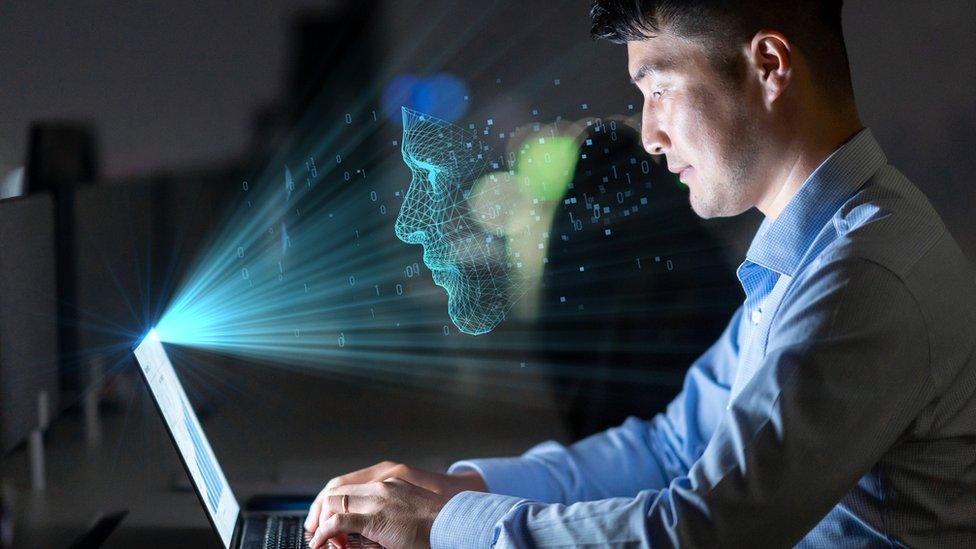UK watchdog warns of emotion-analysis tech risks
- Published

Companies should not use immature biometric technologies to analyse emotion, the Information Commissioner's Office has warned.
The ICO is worried organisations are making critical decisions about people without appreciating there is no scientific evidence the tech works.
And it could cause "systemic bias, inaccuracy and even discrimination".
Deputy commissioner Stephen Bonner told │╔╚╦┐ь╩╓ News the worst tech was little better than a fortune-telling fish.
The movements of the translucent red plastic fish, often found inside Christmas crackers, when placed in the palm of the hand, supposedly predict the future.
Mr Bonner also compared the fantastic claims made for some biometric technologies to the magic sorting hat from the Harry Potter books.
Ineffective technologies
Biometric information is based on physical and behavioural characteristics, such as facial movements or heartbeats.
The ICO was not against properly used biometrics, Mr Bonner told the │╔╚╦┐ь╩╓ News Tech Tent Podcast, stressing some technologies - such as face and fingerprint scans to access smartphones - could protect people's data very effectively.
But scientists told the ICO there was no robust link between people's inner emotions and intent and the expression on their face or sweat on their skin.
As an example, Mr Bonner suggested recruitment technology that analysed a three-minute video and claimed to be able to tell "if this person will be a brilliant fit in your team".
Post-doctoral researchers at Cambridge University recently raised similar concerns about some of the claims made for artificial-intelligence image-analysis systems used to assess a job candidate's personality.
Mr Bonner said the ICO was warning companies: "If you go and buy this technology without any evidence that it's actually working and then there's harm for individuals, we're going to step in."
And it wanted to protect the reputation of legitimate biometric applications from association with ineffective technologies.
Related topics
- Published29 June 2022